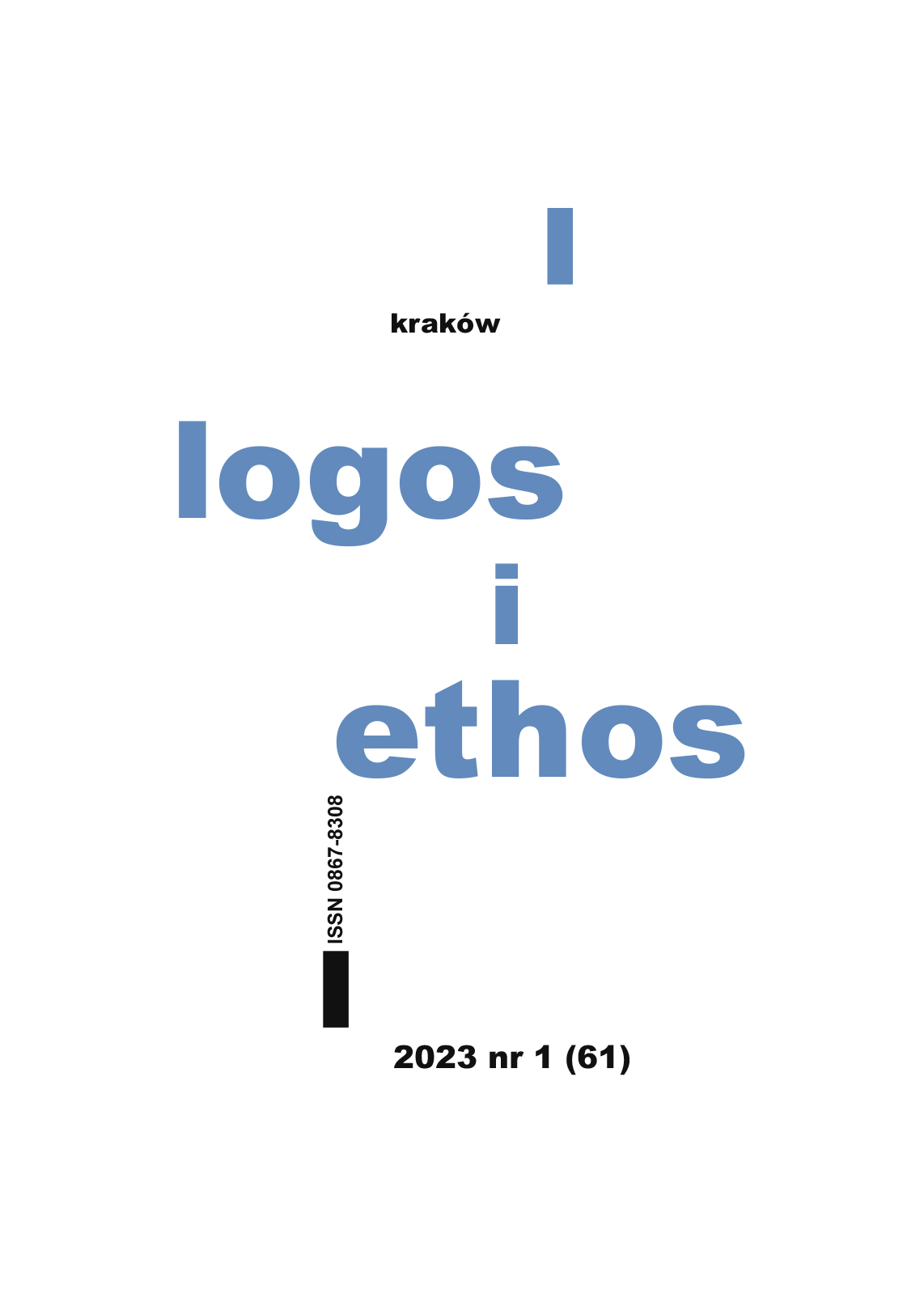A lived experience or a reason? From an ethics debate to contemporary culture
DOI:
https://doi.org/10.15633/lie.61109Keywords:
moral action, rational reason, experience of value, Max Scheler, Karol WojtyłaAbstract
Karol Wojtyła’s debate with Max Scheler is multi-faceted. One of the central issues here is the dispute over the role of a lived experience and a reason in the structure of moral action. What is the starting point for providing an answer to the moral appeal directed at the human person? Is it a lived experience of an axiological quality called ‘value’ or a rational reason in which the value experienced is only one of the elements? Scheler is essentially in favour of the former scenario: the value carries sufficient power to pull the subject into action. And while his efficacy does not completely disappear here, it is fundamentally dominated by the axiological content (and attraction) of the value. Wojtyła takes a critical view of the German philosopher’s position, and states its inadequacy in the formation of mature moral action. A lived experience of a value is important, but it is not enough. The axiological experience moves the person, and contains an extraordinary force motivating one to undertake a specific act. However, without the participation of reason, it can be misguided and even inadequate. A person has to visualise, and to some extent objectivise the lived value for it to become the object of rational evaluation. Wojtyła’s dispute with Scheler is not just a marginal discussion between two European thinkers, within the hermetic philosophical debate of the 20th century. Indeed, it is part of the perennial questions as to what morality is, what role it plays in human life, and to what extent human beings influence the realisation of moral good and evil. The debate can also be a kind of lens affording a better view of the essence of contemporary disputes concerning both morality and culture. The diminishing and marginalisation of reason (especially in the strong, metaphysical version) in various spheres of life is striking. The tension between the culture of feeling and the culture of thinking is discernible and must prompt a debate. Karol Wojtyła shows what shape such a debate could take, and that it could be enriching for the entirety of contemporary culture.
References
Aristotle, Ethica Nicomachea, ed. J. Bywater, Oxford 1984.
Bauerlein M., The Dumbest Generation Grows Up. From Stupefied Youth to Dangerous Adults, Washington, D.C. 2022.
Benedykt XVI, Faith, Reason and the University Memories and Reflections, Regensburg Lecture, 12 September 2006, https://familyofsites.bishopsconference.org.uk/wp-content/uploads/sites/8/2019/07/BXVI-2006-Regensburg-address.pdf (19.05.2023).
Frossard A., Do Not Be Afraid! John Paul II Speaks out on his Life, his Believes, and his Inspiring Vision for Humanity, transl. J. R. Foster, New York 1984.
MacIntyre A., A Short History of Ethics, London 1998.
Word of the Year 2016, http://en.oxforddictionary.com/word-of-the-year-2016 (17.05.2023).
Scheler M., Fromalism in Ethics and Non-Fromal Ethics of Value, transl. M. S. Frings, R. L. Funk, Evanston 1973.
St. Justin, Dialogue of Justin, Philosopher and Martyr, with Trypho, a Jew, in: Writings of Justin Martyr, eds. A. Roberts, J. Donaldson, Houston 2014, p. 130–377.
St. Justin, The Second Apology of Justin for the Christians Addressed to the Roman Senate, in: Writings of Justin Martyr, eds. A. Roberts, J. Donaldson, Houston 2014, p. 113–129.
Wojtyła K., “Person and Act” and Related Essays, transl. G. Ignatik, Washington, D.C. 2021.
Wojtyła K., The Lublin Lectures and Works on Max Scheler, transl. G. Ignatik, A. Lopez, Washington, D.C. 2023.
Downloads
Published
Issue
Section
License

This work is licensed under a Creative Commons Attribution 4.0 International License.
Authors who publish with this journal agree to the following terms:
- Authors retain the copyright and full publishing rights without restrictions, and grant the journal right of first publication with the work simultaneously licensed under a Creative Commons Attribution 4.0 International License that allows others to share the work with an acknowledgement of the work's authorship and initial publication in this journal.
- Authors are able to enter into separate, additional contractual arrangements for the non-exclusive distribution of the journal's published version of the work (e.g., post it to an institutional repository or publish it in a book), with an acknowledgement of its initial publication in this journal.
- Authors are permitted and encouraged to post their work online (e.g., in institutional repositories or on their website) prior to and during the submission process, as it can lead to productive exchanges, as well as earlier and greater citation of published work (See The Effect of Open Access).

